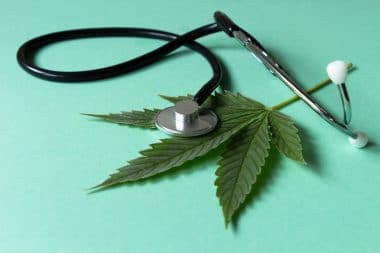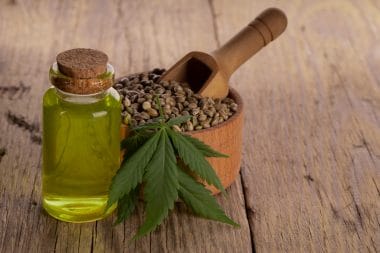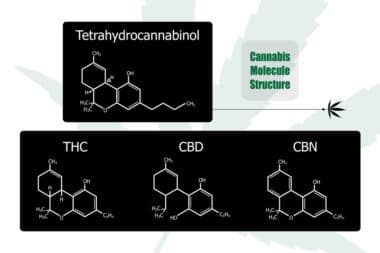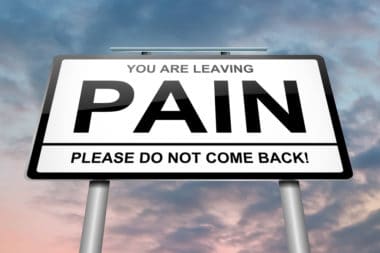For someone suffering from anxiety, the first thing they need to understand is that they are not alone. It’s quite common. More than 31 percent of American adults have experienced anxiety at some point in their lives, according to the National Institute of Mental Health. And those numbers are likely to be higher after 2020 because of COVID-19. Typical remedies for anxiety usually involve prescription medication, some of which can be addictive. That’s why people looking for natural remedies for anxiety consider CBD oil as an option.
The CBD oil available for online delivery in America today comes from hemp. Hemp was made legal under federal law in 2018, as long as the THC level does not exceed 0.3 percent. Other than the THC level, hemp grown for CBD is indistinguishable from full-strength cannabis, which is often referred to as “marijuana.”
Up until the early 20th century, doctors in America were prescribing medical cannabis to patients suffering from a wide range of conditions, including anxiety. Pharmaceutical companies like Eli Lilly, Bristol-Meyers, and Parke-Davis sold cannabis extracts to combat anxiety and other ailments.
In 1937, cannabis was made illegal under federal law. By the 1940’s, the U.S. Pharmacopeia had dropped cannabis from its listings as a potential medicine. Meanwhile, the government continued its prohibition on cannabis by increasing legal penalties for those caught growing or possessing it. These penalties increased through the decades and still exist today.
However, America appears to be in the midst of a paradigm shift when it comes to the legality of cannabis and its potential to help with conditions like anxiety. At least 34 states have legalized medical marijuana, and an additional 15 states have legalized cannabis for adult use. On top of that, nearly every state in America has legalized hemp-derived CBD oil as a wellness supplement to potentially help with a ride range of conditions, including anxiety.
According to a survey published in 2019 by Consumer Reports, 37 percent of respondents said they use CBD to “reduce stress or anxiety or help you relax.” This survey was based on anecdotal data gathered from current users of CBD oil. These survey findings reflect preliminary research into CBD for anxiety. However, more research is needed to fully understand how CBD might affect anxiety in humans.
As of the end of 2020, the U.S. Food and Drug Administration has not yet approved CBD oil as a potential treatment for anxiety or any other condition. The only government program that certifies CBD products is the USDA organic program.
Some Anxiety-Relief Options
Finding the right treatment for anxiety can be very tough. And the frustration of searching for a workable option can make a person’s anxiety even worse. Some of the options include talk therapy, prescription medication, and natural remedies.
Talk therapy: Anyone who has had success with a therapist will say that everyone should be in therapy. But talk therapy isn’t for everyone. It requires taking time out of the week, and it could cost more than some insurance policies will cover. But for those who can afford the time and money, talk therapy may be a good place to start for tackling anxiety.
Prescription medication: Medicines prescribed by psychiatrists can also be effective way to treat anxiety. The process of finding what works for a specific person’s expressions of anxiety can take a long time and must take into account negative drug interactions. Some prescription medications, like benzodiazepines, can be abused and lead to addiction. Prescription drug abuse has been steadily rising in the United States over the past two decades, and over-prescribing medications like benzodiazepines has contributed to that problem.
Natural remedies: Some people find anxiety relief through natural activities like exercise or meditation, often used in conjunction with other coping solutions like therapy or medications. Another potential natural remedy for anxiety is CBD oil.
Does CBD Oil for Anxiety Work?
CBD, or cannabidiol, is one of the 120 or more compounds found in cannabis and the second most prevalent cannabinoid in the plant after THC. Until 2018, CBD was considered to be as illegal as THC, but the passage of the Farm Bill that year opened the door to American production of hemp-derived CBD oil.
Before hemp was legalized, CBD was far less well-known than THC. But since CBD doesn’t get a person “high” in the way that THC does, it didn’t have an attraction to people looking to get high from cannabis. But the hemp plant has much more to offer a person’s wellness needs than a “high” from THC. That’s because preliminary research indicates that CBD could help regulate bodily systems to bring them into balance.
The potential wellness benefits of CBD are still being studied, but anecdotal reports indicate that CBD oil can potentially help with anxiety.
How to Take CBD Oil for Anxiety?
CBD oil comes in a dropper, and a person puts a full dropper of it under their tongue. To allow it to absorb into the bloodstream, a person should hold the CDB oil under their tongue for 30 seconds to a minute. Before swallowing, it’s a good idea to coat the mouth with the CBD oil to maximize its exposure to the capillaries in the tongue, gums, and cheeks.
A dose of CBD oil may render calming effects from anywhere between 20 minutes and two hours of ingestion. But the true power behind CBD use is the cumulative effects felt when taking it consistently over a period of time. That’s why it’s important for a person to take CBD oil daily for several weeks to discover its full potential benefits.
As for dosage or serving size, general guidelines range from 10 mg to over 300 mg of CBD per day. It’s best to start with a low dose and then increase the doses in 5 mg intervals until a person finds their ideal dose. A starting dose of 25 mg per day is generally regarded as safe by CBD users.
The best news is that trying CBD should not make a person more anxious. That’s because CBD carries a very low risk of abuse, overdose, or addiction. Because there’s no “high” effect associated with CBD, there’s no incentive to misuse it. That means trying CBD oil for anxiety is largely risk-free, unless a person faces a work-place drug test.
Employer drug screenings for THC can come back with positive results for people using CBD oil. Even THC-free CBD oil can trigger a false positive on some tests. So people facing employee drug tests should communicate proactively with their employer about their desire to try CBD oil to reduce the risk of a misunderstanding.
Anxiety Help Resources
If things get too bad, there are people who can help! For many, talk therapy just isn’t an option, but they still need to talk to someone. For these people, there are a number of hotlines established to provide immediate attention.
- Call 1-800-662-HELP (4357) for the Hotline from the Substance Abuse and Mental Health Service Administration (SAMHAS)
- Call 1-800-273-8255 for the National Suicide Prevention Hotline
- Or text “Hello” to 741741 for the National Suicide Prevention Hotline
Taking the first step to fight back against anxiety can be the hardest step. That’s another reason why CBD oil could be a good option for someone who has resisted traditional forms of anxiety relief.
Now that it’s legal, CBD oil is available in retail settings all around America, and delivered to all 50 states through online ordering. To relieve concerns about mislabeled or contaminated CBD products, look for CBD oils bearing the USDA Organic seal, like those from Cornbread Hemp.
These statements have not been evaluated by the Food and Drug Administration. This product is not intended to diagnose, treat, cure, or prevent any disease.








Reply